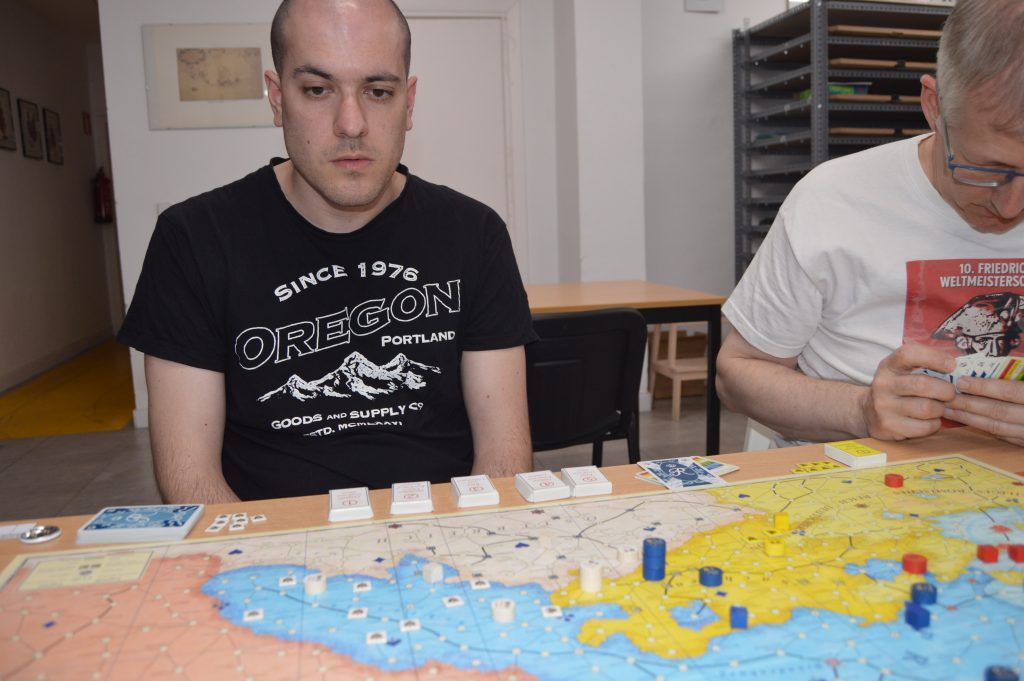
Juan ponders how to overcome the Prussian concentration in Saxony. Meanwhile, Guy examines his cards, trying to make the best of his scarce resources. Close to him a routed French general has just returned to the fray.
Table 1
As one of the Berlinese newcomers, David Önkür was clearly somewhat dismayed to have to play as Prussia in the first round. This game was no walk in the park for him, as he ran out of time on the clock, but nevertheless, emerged victorious after 17 rounds.
Some serious defeats held Guy’s Frenchmen in check. The Russians (Andreas Zöllitz) were unable to break into Kammin and left the game in round 13 with only 5 cities conquered. The real threat came from Juan’s Austrians. David surrendered Silesia early with barely any kind of fighting and concentrated on the defence of Saxony. Not having enough diamonds to defeat the Prussian triple stack there. Juan tried to cut off their supply. He almost succeeded, but one Prussian general slipped past the encirclement and was able to retake a few objectives in Silesia during the last rounds.
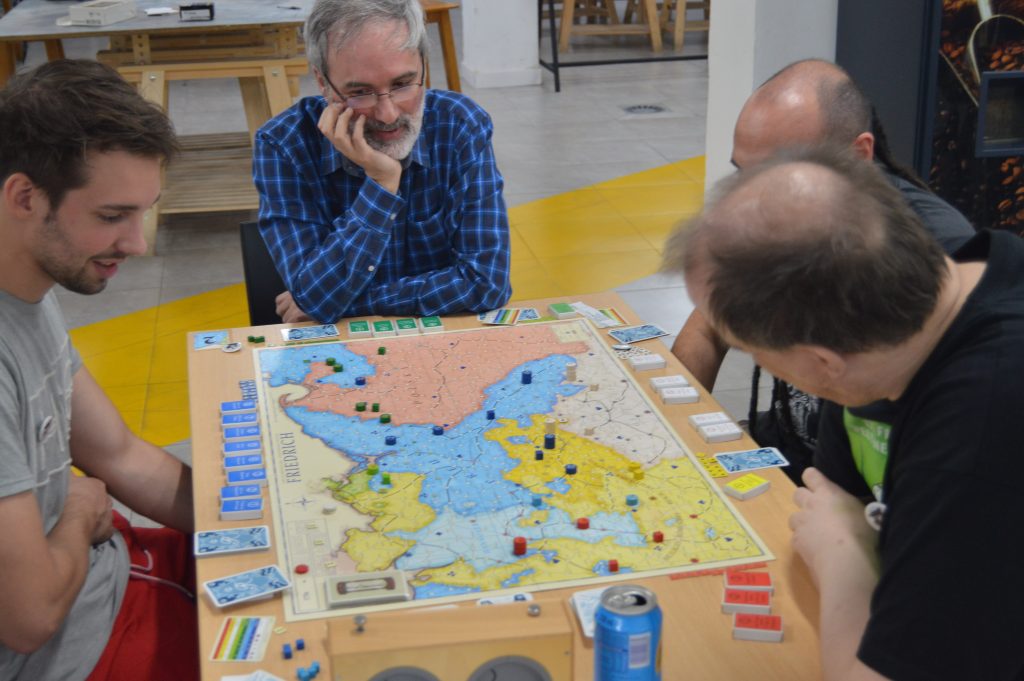
At the beginning of the game the atmosphere on the table is still cheerful.
Table 2
Felx Schmucker’s first game of the tournament, as Prussia, was also one of the shortest of the whole contest. A great deal of fighting was done between the Prussians and the Russians (José Manuel). But this expediture of tactical cards didn’t help either them, as Elisabeth died at the end of round 7. One round later Björn was able to take the last, weakly-protected French objectives and claim victory. With four reserves, he had good reason to feel confident!
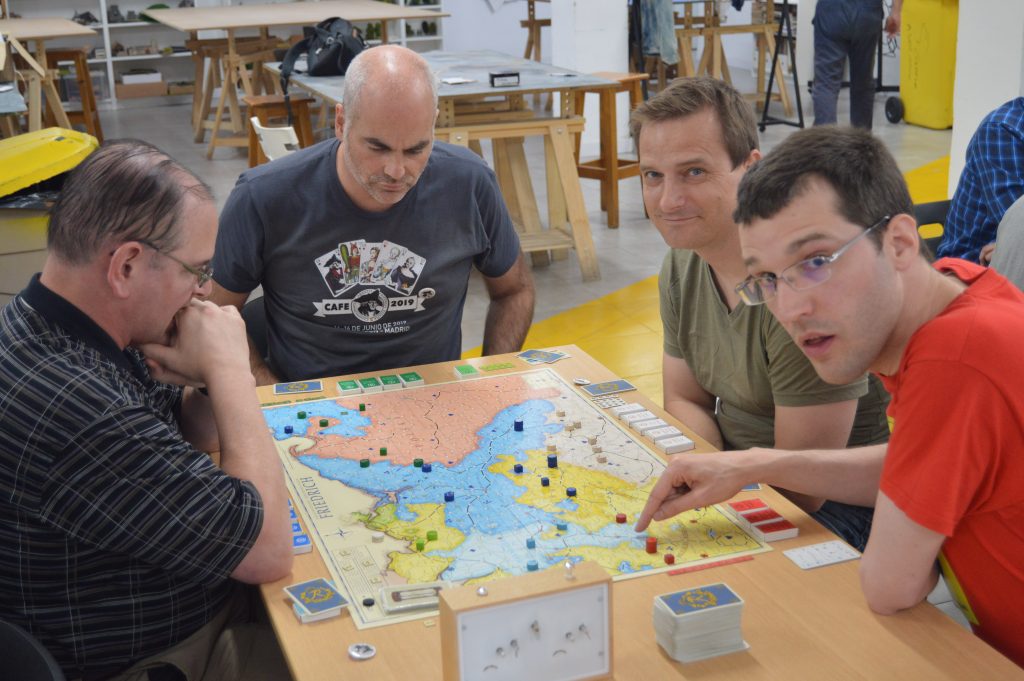
Andrew surprised by the camera making his move, while Anton poses with a smile. Mark and Alex, meanwhile seem to be completely focused on the board.
Table 3
The veteran American Mark Luta mounted a pretty solid defence against both Russia and France, and even against Austria in Silesia too. But Anton, forced by an initial poor draw of diamonds, took advantage of the Prussian withdrawal from Saxony and went for victory with the Imperial Army. This is always a somewhat risky undertaking, but Anton’s luck held and only Sweden left the game on round 8. Mark was powerless to stop the white pieces opening a path for Hildi, and Anton was able to claim victory in round 11.
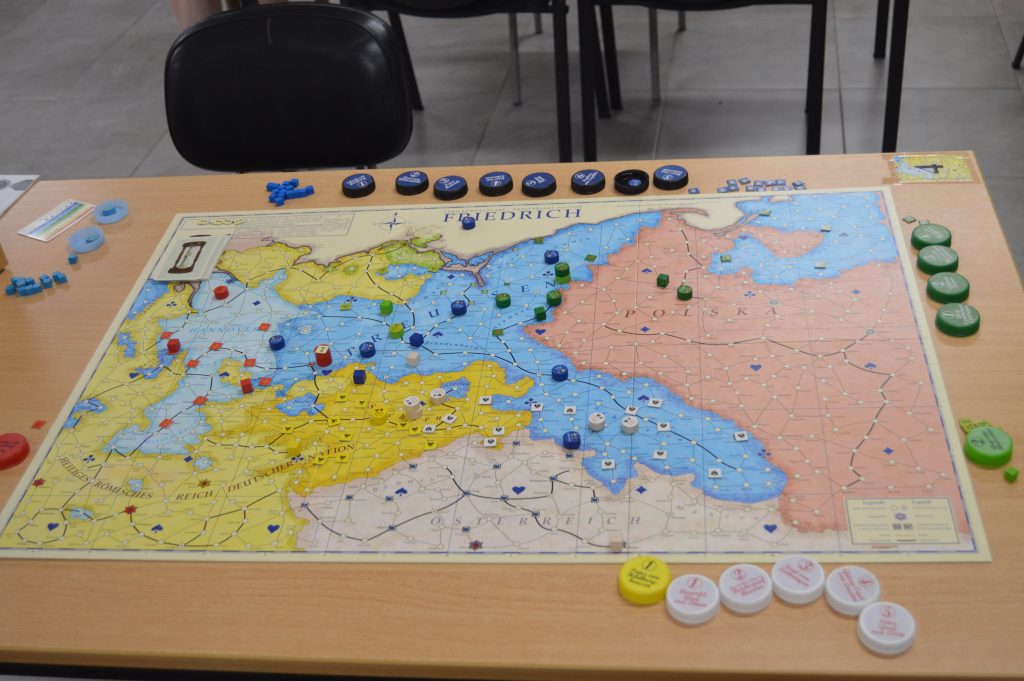
Endgame; double (nearly triple) allied victory.
Table 4
Due to one player dropping out at the last minute, the tournament organizer, José, had to take his place at this table as Maria Theresa. David Fernández’s Prussians set up a defence both in Saxony and Silesia, but constant Austrian attacks with troop superiority wore down his card hand. That not one of his enemies showed any signs of quitting (Elisabeth would have been drawn on round 16) didn’t make David’s game any easier, forcing him repeatedly into costly fights. The encirclement and destruction of the last Prussian in Saxony allowed a double victory for José’s Austrians and the Imperial Army, which might have been a triple victory (by France, with Alberto) but for the minor event that prevents Chevert from unstacking.
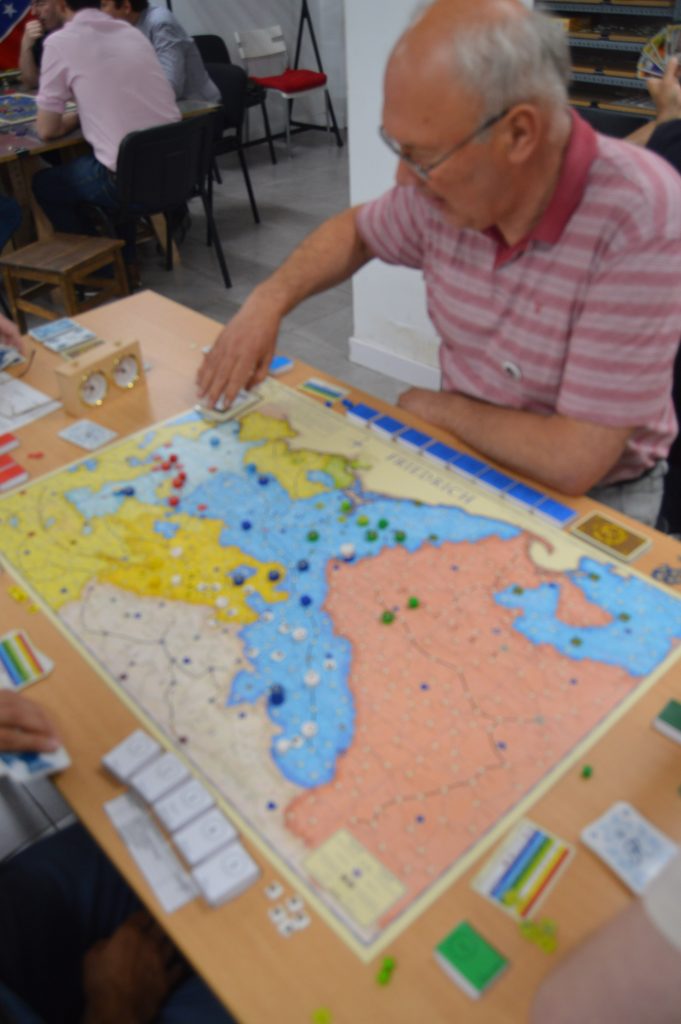
Being pretty much surrounded by enemies doesn’t make a dent in John’s well-positioned defence.
Table 5
John McCullough’s Prussians were harried by his enemies from all sides at the beginning of the game, but this veteran Friedrich player from York was able to hold them off until Elisabeth’s death on round 10 and a lack of subsidy reductions made the allies lose heart. From then on John’s position on the board kept on improving until final victory in round 19.


 Español
Español

